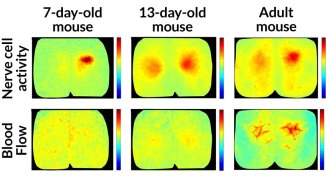Humans
Sign up for our newsletter
We summarize the week's scientific breakthroughs every Thursday.
-
 Health & Medicine
Health & MedicineTight spaces cause spreading cancer cells to divide improperly
Researchers are using rolled-up transparent nanomembranes to mimic tiny blood vessels and study how cancer cells divide in these tight spaces.
-
 Archaeology
ArchaeologyAncient Europeans may have been first wine makers
A new chemical analysis uncovers the earliest known wine making in Europe.
By Bruce Bower -
 Psychology
PsychologyMoral dilemma could put brakes on driverless cars
Driverless cars race into a moral conflict over saving passengers or pedestrians.
By Bruce Bower -
 Psychology
PsychologyNew studies explore why ordinary people turn terrorist
New studies are examining the "will to fight" in ISIS soldiers and their opponents.
By Bruce Bower -
 Life
LifeNew species of bacteria found to cause Lyme disease
Camping? Don’t forget the bug spray. Lyme disease covers new ground.
By Laura Beil -
 Science & Society
Science & SocietyTough gun laws in Australia eliminate mass shootings
Following the 1996 implementation of strict gun control laws in Australia, the country has not experienced any mass shootings.
By Meghan Rosen -
 Neuroscience
NeuroscienceNewborn brain has to learn how to feed itself
Nerve cells in newborn mice can’t yet feed themselves.
-
 Health & Medicine
Health & MedicineIn malaria battle, indoor bug spraying has unintended consequence
Years of spraying indoors may inadvertently have push malaria-spreading mosquitoes to venture outdoors for a bite.
By Susan Milius -
 Life
LifeFor cleanest hands, squirt and count to 30
Rubbing hands for 30 seconds is the most effective way to use hand sanitizer, a study of health care workers finds.
By Laura Beil -
 Life
LifeFor tooth decay microbes, many routes lead to kids’ mouths
Mothers aren’t their children’s only source of bacteria that cause dental cavities, new research shows.
By Laura Beil -
 Archaeology
ArchaeologyLidar maps vast network of Cambodia’s hidden cities
Laser survey unveils the extent, and the mystery, of Southeast Asia’s Khmer Empire
By Bruce Bower -
 Neuroscience
NeuroscienceCocaine addicts can’t kick other habits either
Habitual users tend to get stuck in nondrug-related habits more easily, too, pointing to a potential strategy for treatment